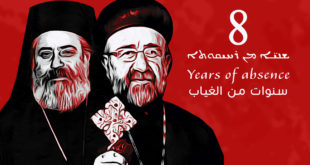Foreign Policy
Tuesday, June 28, 2011
Rep. Dennis Kucinich (D-Ohio) raised a few eyebrows yesterday when CNN correspondent Hala Gorani revealed on Twitter that she had run into the congressman in Damascus. Kucinich said that he was on a "fact-finding" mission to Syria and Lebanon and had met with Syrian President Bashar al-Assad for three hours.
As my office mate Joshua Keating points out, the Assad regime was quick to exploit Kucinich’s visit for political gain. The state-run Syrian Arab News Agency (SANA) quoted him as saying that Assad "is highly loved and appreciated by the Syrians," and warning darkly about "some who want to give a wrong picture about what is going on in Syria."
But Kucinich said in a statement that SANA’s story didn’t accurately convey his remarks, though he refused to accuse the Syrian regime of willful distortion. "Arab-speaking friends accompanying me have explained that the problem may have come from a mistranslation," the congressman wrote, noting the problem may also have stemmed from "the degree of appreciation and affection their state-sponsored media has for President Assad."
"Given the stakes for Syria and the region, I will consider the article only an error, not a willful intent to mischaracterize my statements or my efforts in the region," he said.
But that explanation doesn’t make any sense. Kucinich doesn’t speak Arabic, so his remarks were presumably in English, and SANA’s article is written in English — so no translation should have been necessary. Kucinich’s press office in Washington did not immediately respond to a query on this point. It seems eminently obvious that SANA was exploiting Kucinich’s presence as evidence of international support for the Assad regime — something the congressman should have known they would do before he arrived in Damascus.
Kucinich’s full statement is after the jump.
Today, the Syrian Arab News Agency published an article that contained a number of mistranslations and mischaracterized statements that I made during a news conference in Damascus.
While on fact-finding mission in Syria, I was asked to share my initial reactions with some journalists, which I did. During my remarks I stressed the importance of the government paying attention to the democratic aspirations of the people of Syria. It is up to the people of Syria to decide the future of their government. There is a process of national dialogue beginning and this process is important. It is important that the Assad government listen carefully to the just demands and act positively to fulfill the democratic aspirations of the people of Syria. The process of national dialogue which has now begun is a step in the direction of identifying necessary reforms.
I did not come to Syria with my mind made up. After discussions with people at many different levels of society, I am convinced of the need for honesty, fairness and dialogue.
A story written about my remarks by the Syrian Arab News Agency unfortunately mistranslated several of my statements and did not reflect my direct quotes. Arab-speaking friends accompanying me have explained that the problem may have come from a mistranslation as well as the degree of appreciation and affection their state-sponsored media has for President Assad.
It is unfortunate that translation errors can create such problems. Given the stakes for Syria and the region, I will consider the article only an error, not a willful intent to mischaracterize my statements or my efforts in the region.
I intend to continue my efforts to determine as best I can exactly what is happening in Syria, ever more mindful of the maxim, "lost in translation."
 Assyrian Democratic Organization ADO
Assyrian Democratic Organization ADO






